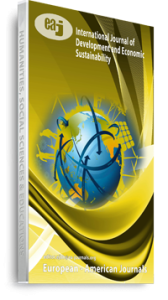This study examined the impact of trade facilitation on unemployment in Nigeria from 1985 to 2022. Trade facilitation was measured using trade openness, foreign direct investment (FDI), real exchange rate, and official development assistance, while unemployment was measured by the unemployment rate. An ex-post facto research design was used, relying on annual time series data from the Central Bank of Nigeria. Data analysis included descriptive statistics, trend analysis, ADF unit root test, bounds cointegration test, and ARDLFindings showed a long-run relationship among the variables. Trade openness and FDI had a significant negative effect on unemployment in both the short and long run. Real exchange rate had a positive but non-significant effect, while official development assistance had a negative and significant effect in the short run and a negative, non-significant effect in the long run.The study concluded that trade facilitation helps reduce unemployment in Nigeria. It recommended that the government promote trade openness in labour-intensive sectors and support SMEs in accessing global markets to boost job creation.
Keywords: Exchange Rate, Investment, Labour, Nigeria, Time Series, Unemployment

